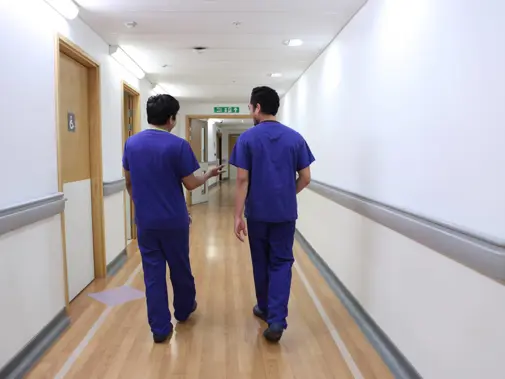Dr Nagpaul warned that, in its current form, the draft legislation failed to address a number of concerns of the BMA, adding that the demands of the pandemic prevent doctors from meaningfully engaging with the proposals.
Speaking on 9 September at a hearing of the Commons' Health and Care Bill scrutiny committee, Dr Nagpaul said he and many of his colleagues had grave concerns with the shortcomings of many of the bill’s provisions, but also the timing of efforts to bring about such significant legislative change to the health service.
He urged ministers to rethink the timing of the legislation and bring forward the right bill for the NHS at the right time – when doctors were in a position to contribute to the debate, and when the BMA’s areas of concern regarding the proposals had been acted on.
He said: ‘These changes have occurred when the profession has not been able to engage, and we believe this is the wrong bill at the wrong time.
‘We [the BMA] do not support the status quo [and] there is a pressing need to repeal much of the 2012 Act. However, I can’t overstate how much the pandemic has affected us and we have not been able to be engaged.
‘We know that any reorganisation of the health service means that people get distracted away from their core work, the process of reorganisation takes human resource time and we’ve not been able to engage as we should.’
He added: ‘This is a bill that can shape the future of our health service. Get the right bill at the right time.’
Numerous concerns
Dr Nagpaul was one of five leaders from professional associations, trade unions and medical royal colleges to provide their views on the draft Health and Care bill to members of the public bill committee.
Appearing alongside UNISON’s head of health Sara Gorton, Dr Nagpaul elaborated on the BMA’s numerous concerns about the wording and structure of the bill which, if signed into law, could represent the largest legislative change to healthcare in almost a decade.
One area of the bill Dr Nagpaul singled out for criticism was proposals to repeal section 75 of the 2012 Health and Social Care Act, which mandates the tendering of services by NHS providers, without enshrining vital safeguards such as ensuring the NHS be made the first-choice default provider of NHS services.
He said: ‘We believe the NHS should be the preferred provider of care wherever it’s capable and wherever its available to do so.
‘If you repeal section 75 but do not allow the NHS to be a preferred provider, we believe that it opens the door for contracts to be handed out to the private sector and in fact undermine the NHS.
‘We believe it’s really important the bill is amended to make the NHS the preferred provider. We believe it will allow for much more coordinated, accountable, and locally focused population-approach health service.’
Network proposal
Expanding on these proposals, Dr Nagpaul said he would like to see the bill amended to include statutory requirements for foundation trusts and other parts of the NHS to work collaboratively, adding that insufficient ‘structural processes’ enabling such collaboration are currently set out in the bill.
Dr Nagpaul also voiced the association’s concern about the bill’s proposals for integrated care system boards, warning that the wording of the bill excluded public health doctors and would likely ‘dilute’ local accountability and greatly reduce the input of clinical staff.
He further warned that allowing private providers positions on such commissioning boards represented a clear conflict of interest.
He said: ‘If we have a bill that’s designed to support the NHS it doesn’t make sense to then allow a private provider to sit on a commissioning board.
‘There is a difference between a private provider and the NHS. The private provider is driven, ultimately, by its financial motives, and to be sitting on a board influencing the spend of money in which it may have an interest, is a conflict of interest that does not apply to the NHS.’
Tackle fear
Questioned about the bill’s proposals for a healthcare safety investigation body, Dr Nagpaul said he and the BMA were supportive of the concept of such an organisation, provided it tackled the prevailing cultures of fear and blame in the NHS.
He said: ‘We know the NHS is ridden with a fear culture and a targeting of individuals for systemic failures.
‘It’s absolutely right to have an arrangement where you can learn from serious incidents where healthcare staff, doctors and patients can have a safe place where they can be able to be free of fear to contribute and learn from.’
He added: ‘Safe-places should be safe-places, they should be legally privileged and that will allow us to make the NHS safer because that openness will allow us to address the systemic issues that actually make up the majority of medical error in our health service.’
To watch the Health and Care Bill committee’s evidence session in full, click here and to find out more about the BMA’s position on the bill, click here

